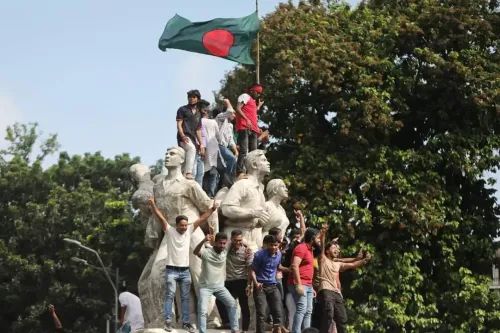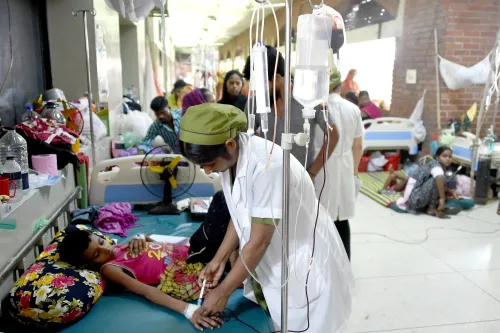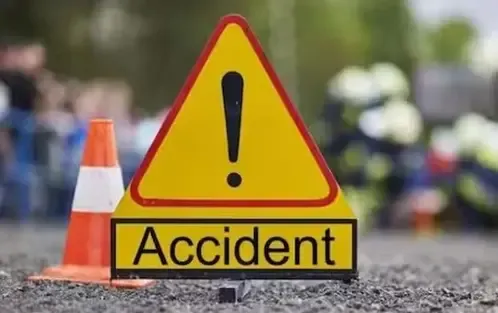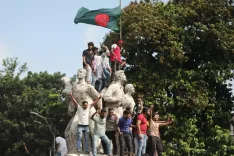When Will Russia and Ukraine Hold Their 3rd Round of Talks?
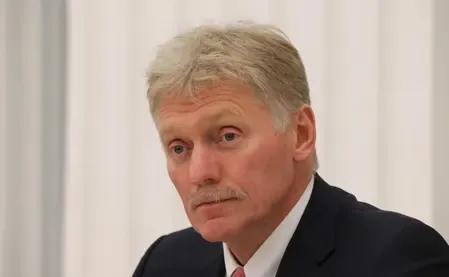
Synopsis
Key Takeaways
- Upcoming talks: Dates for the third round of negotiations between Russia and Ukraine are expected to be finalized soon.
- Previous agreements: The first two rounds have resulted in notable agreements regarding prisoner exchanges.
- Ceasefire demands: Russia's demands for a ceasefire include significant territorial conditions.
- Ukrainian response: Ukraine has rejected these demands, viewing them as unacceptable.
- International involvement: Turkey is actively facilitating discussions, indicating broader diplomatic engagement.
Moscow, July 3 (NationPress) The Kremlin anticipates that the scheduling for a third round of talks between Russia and Ukraine will be confirmed soon, as stated by Kremlin Spokesman Dmitry Peskov.
"We anticipate that an agreement will be reached shortly," Peskov mentioned on Wednesday, reiterating Moscow's position that setting a date for discussions requires mutual consent.
He pointed out that while no concrete date has been established, the negotiation framework is fundamentally collaborative.
"This is a mutual process," he stated.
The inaugural round took place on May 16 in Istanbul, followed by the second round on June 2, also in Turkey.
During the last meeting, Ukrainian Defence Minister Rustem Umerov suggested that the third round occur in the last week of June.
In the first round, an agreement was made for the exchange of prisoners, while the second round resulted in the return of 6,000 bodies of Ukrainian soldiers, along with the exchange of sick prisoners and those under 25 years old.
However, despite the agreements reached on June 2, media reports from Moscow indicated that the Kremlin proposed two ceasefires, demanding the withdrawal of the Ukrainian military from four regions that Russia claims (Donetsk, Luhansk, Kherson, and Zaporizhia), along with Ukrainian presidential elections within 100 days.
Ukrainian President Volodymyr Zelensky, on his part, has called for new sanctions, as he perceives no intention of peace from these demands.
Repeatedly, Zelensky has dismissed Russia's conditions for ending the armed conflict, viewing them as a demand for surrender.
Andriy Yermak, Zelensky's Chief of Staff, emphasized that "the Russians are doing everything in their power to obstruct a ceasefire and prolong the war. It is crucial to impose new sanctions immediately."
During the Istanbul talks, both nations documented agreements that Russian President Vladimir Putin characterized during the Eurasian Economic Union summit as fundamentally opposed: "The memoranda, as anticipated, are fundamentally different. However, negotiations are ongoing to identify points of convergence. Their differences are not surprising."
According to the Kremlin spokesperson, the pace of future negotiations hinges on the Kyiv administration and the mediating efforts of the US.
He underscored that "there is a tangible reality on the ground that cannot be overlooked and must be acknowledged."
Russian Foreign Minister Sergei Lavrov remarked that resolving the war in Ukraine involves addressing the root causes of the conflict, asserting that Russia is ready to cease hostilities.
The Russian President noted that in the upcoming negotiation round, which will occur after the agreed exchanges are completed, the memoranda must be addressed.
For him, "the humanitarian aspect is vital, as it lays the groundwork for what diplomats call a thorough examination of the essence of the issue."
Conversely, Turkish President Recep Tayyip Erdogan confirmed that he is in communication with US President Donald Trump, both expressing their willingness to participate in the negotiations. He informed the Turkish news agency Anadolu of his commitment to facilitating this as soon as possible.

